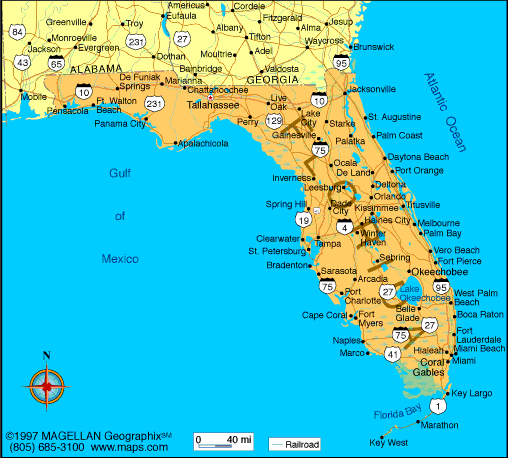“They're all coming here because they seem to think
this is the next Singapore. This is the next London. This is the next great
global city. “
Miami Real
Estate Consultant Peter Zalewski
Few people
track Miami development closer than Peter Zalewski. He runs Cranespotters.com,
a business that keeps tabs on all the new construction proposed in downtown
Miami.
In an area
that covers less than 4 square miles, he notes, there's a lot going on. In
"downtown Miami, we're looking at 69 towers, 18,400 units," all
residential condominiums, Zalewski says.
If
history is any guide, not all of the projects will be built. But Zalewski says
there are other big projects coming that are likely to add to the total.
Unlike
construction elsewhere, the new condo boom in Miami is being financed mostly by
foreign buyers. It caps a decade of building that has transformed one of
America's poorest cities into an international destination.
"I
would tell you, if we were to sit down in a year from now, we will be well over
and above what we did during our last boom and ultimate bust and then ultimate
recovery," Zalewski says.
A City Built On Building Sprees
Since
the city was founded just over a century ago, Miami's history has largely been
a series of property booms and busts.
Over
the span of just a few years — until it ended in 2006 — Miami's last building
spree added more than 20,000 condo units to a downtown where previously few had
lived.
Today's new
boom is adding more condos, as well as commercial, retail and entertainment
properties, at a dizzying pace.
Brickell
City Centre, one of the large-scale projects currently under construction, is a
$1 billion project that will include residential condos and a hotel, plus a
shopping and entertainment complex.
Several
blocks away in Miami, construction is slated to begin soon on an even larger
complex, the $2 billion Miami WorldCenter.
Developer
Nitin Motwani refers to the project as "the hole in the doughnut."
Right now, it's a 30-acre parcel of parking lots and old buildings in the heart
of the city. But Motwani is planning a convention hotel, a shopping mall and
more condominiums.
"Everybody
has got their eyes on Miami," Motwani says.
Fine Homes For Foreign Investors
Similar
construction booms are going on in other cities — Los Angeles, New York,
Houston and Washington, D.C., to name a few. In Miami, though, developers are
focused on one particular Real estate consultant Zalewski says Miami, with its
celebrities, nightlife and jet-set events, has built an international
reputation.
"This
is why we have Russian oligarchs purchasing property. This is why we have
Malaysian conglomerates that own casinos and cruise lines coming here and
buying," he says. "They're all coming here because they seem to think
this is the next Singapore. This is the next London. This is the next great
global city."
The
annual Art Basel show, an event that attracts the ultra-wealthy to Miami Beach
every December, has also been a factor.
Developers
and city officials say they can track foreign investment dollars by watching
the news. Sales to Russian buyers slowed after the U.S. imposed sanctions on
that country. Economic and political turmoil in Latin America brought investors
from that region.
And
it's not just the super-wealthy buying here. Nelly Fernandez lives in Caracas,
Venezuela, where she's a real estate broker. Because of Venezuela's crime and
political problems, Fernandez says, she's used her savings to buy a modest
condo in Miami.
"I
have many, many friends in Miami," she says. "I have family there. In
this city, I feel like I am like home, you know?"
Developer
Motwani says that's one of Miami's key attractions for international buyers —
it's a city where visitors from Latin America, Europe and even Russia quickly
find others who literally speak their language.
"When
people come here, you get beautiful weather, you get great taxes, you get great
restaurants, you get great beaches," Motwani says. "All of that is
spectacular. But what no one else can replicate is the diversity of our
people."
The
decade of residential construction has transformed Miami's downtown. Many of
the condos are now rented by young professionals who work and play in the area.
City Commissioner Marc Sarnoff says that has dramatically altered the
demographics of the urban core.
"The
average person is 37 years old. That's pretty young," he says. "Miami
is undergoing a youth movement. And that youth movement is good because it's
the creative class moving to the downtown core."
But
the high-end development downtown can mask another important fact about Miami:
Even after all the new construction, it remains one of America's poorest
cities. According to the Census Bureau, the Miami area has the nation's
second-lowest median income, lower than Detroit or Newark, N.J.
With
the wealth pouring in, the divide between rich and poor is getting wider.
Particularly vulnerable are residents who live in neighborhoods that border on
Miami's downtown.
In
Overtown, a nearby neighborhood, work crews are renovating the old Josephine
and Dunn Hotel. It was one of the few accommodations in segregated Miami open
to African-Americans in the 1930s and 40s.
Yvette
Harris works with Jackson Soul Food, a restaurant that's a Miami landmark. By
next year, Harris says, Jackson will turn the old hotel into a European-style
bed and breakfast "where travelers will be able to come into a community
where they're able to do some cultural tours and learn a little bit about the
Overtown area."
The
work is being paid for out of a fund generated by fees on downtown development.
Also in the works is a $60 million project to build affordable housing.
Activist
and author Marvin Dunn is concerned about the neighborhood's future as
developers begin looking for new places to build.
"So
these properties [will] become very, very valuable," he says. "What
will happen? The private market will dominate. People will build. Development
will proceed to the west. Overtown will be squeezed."
Dunn
believes gentrification may push out half of the community's longtime
African-American population in coming years. A decade after high-rise
condominiums began reshaping Miami's downtown, it's an indication that the
city's transformation never stops.


.jpg)















